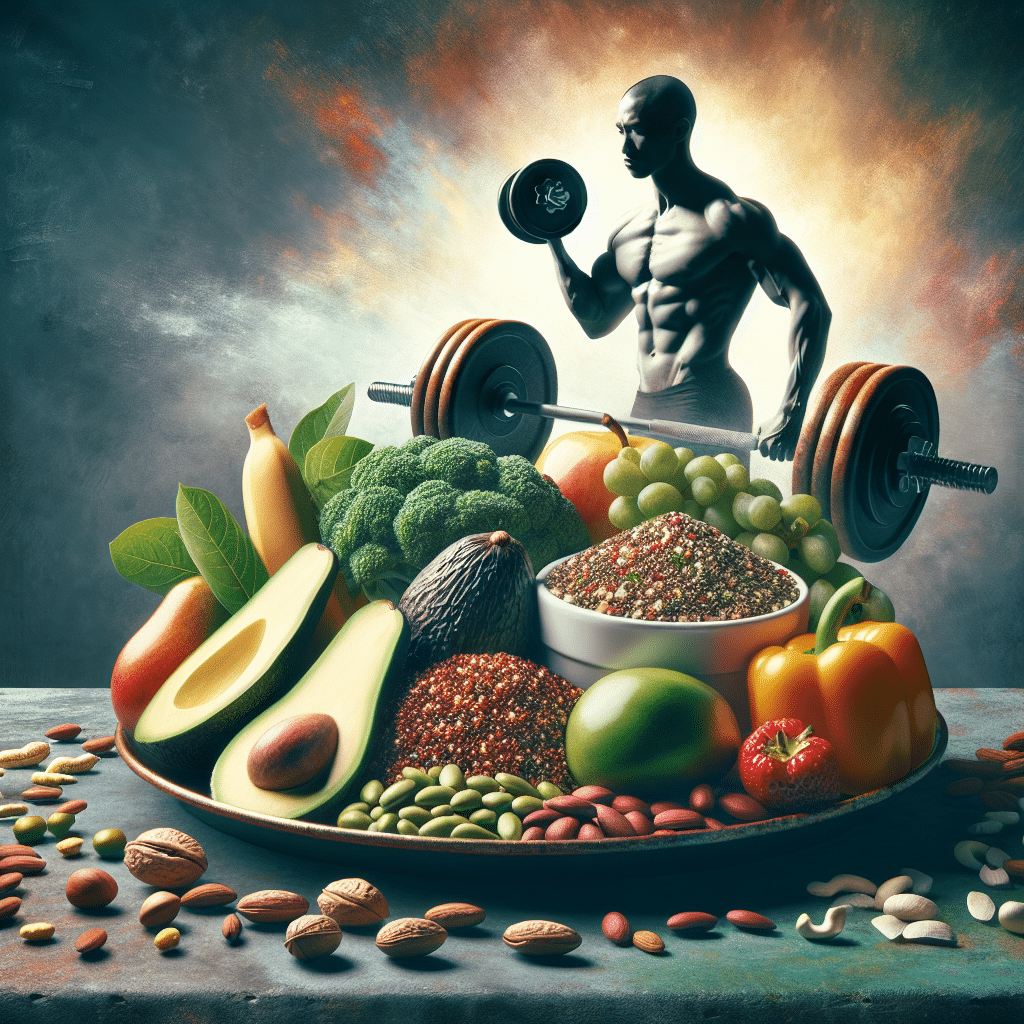Understanding Plant-Based Eating for Strength Athletes
Benefits of Plant-Based Diets for Strength Performance
Plant-based diets are gaining popularity among athletes, particularly strength athletes, due to numerous benefits. They can enhance performance through improved recovery, increased energy levels, and better nutrient absorption. Nutritionally, plant-based diets are rich in antioxidants and anti-inflammatory compounds, essential for muscle recovery and overall health.
Key Nutrients for Strength Athletes
Protein: The foundation of muscle repair and growth. Strength athletes must ensure adequate protein intake even in a plant-based diet.
- Sources: Legumes (lentils, chickpeas, black beans), soy products (tofu, tempeh), seitan (wheat gluten), quinoa, hemp seeds, and plant-based protein powders.
Carbohydrates: Crucial for energy, especially during intense workouts.
- Sources: Whole grains (brown rice, oats, quinoa), fruits, vegetables, and starchy vegetables (potatoes, sweet potatoes).
Fats: Necessary for hormone production and nutrient absorption.
- Sources: Avocados, nuts, seeds, nut butters, and oils (olive, flaxseed, and coconut).
Vitamins and Minerals: Calcium and iron are critical for muscle function and energy metabolism.
- Sources: Leafy greens (kale, spinach), fortified plant milks, almonds, and beans.
Meal Planning for Strength Training
1. Breakfast: Energizing Starts
- Overnight Oats: Combine rolled oats with plant-based milk, chia seeds, and topped with fruits and nuts for an energy-dense meal.
- Smoothie Bowl: Blend spinach, banana, and a scoop of plant protein, then top with nuts, seeds, and berries.
2. Pre-Workout Fuel: Carbohydrate-Rich Choices
- Sweet Potato or Quinoa: A great option that provides quick carbs and is easy to digest. Pair with a source of protein.
- Banana and Almond Butter: Simple, portable, and effective for sustained energy.
3. Post-Workout Recovery: Replenishing Nutrients
- Protein Smoothie: Use a blend of pea or hemp protein powder mixed with fruits, spinach, and nut butter. This helps replenish glycogen stores and repair muscles.
- Chickpea Salad: Chickpeas mixed with quinoa, chopped vegetables, and tahini dressing offer protein and healthy fats.
Supplementation for Plant-Based Strength Athletes
While a well-planned diet can cover most nutrient requirements, some athletes may need supplements:
1. Protein Powder: A convenient way to reach protein goals. Pea, rice, or hemp protein are great options.
2. Vitamin B12: Essential for neurological function. A deficit can occur in strictly plant-based diets.
3. Omega-3 Fatty Acids: Consider algal oil supplements for a plant-based source of DHA and EPA.
4. Creatine: Although found in animal products, vegan-friendly creatine supplements can enhance muscle strength and recovery.
Hydration Strategies
Hydration is vital for optimal performance.
- Water: Ensure adequate water intake throughout the day, especially around workouts.
- Electrolyte Drinks: Consider natural sources such as coconut water or homemade electrolyte drinks to replenish lost minerals after intense workouts.
Snacks to Support Energy Needs
- Energy Balls: Made from oats, nut butter, and dates, these are protein-rich and energy-dense.
- Roasted Chickpeas: A crunchy, high-protein snack.
- Veggie Sticks with Hummus: Provides fiber, protein, and healthy fats in a low-calorie option.
Common Challenges and Solutions
One challenge strength athletes may face on a plant-based diet is maintaining adequate caloric intake.
- High-Calorie Foods: Incorporate nuts, seeds, avocados, and oils to increase calorie density without excess volume.
Digestive issues may arise due to the high fiber content in a plant-based diet.
- Gradual Transition: Slowly increase fiber intake to allow the digestive system to adapt.
Meal Frequency and Timing
Strength athletes should consider meal frequency to support energy needs. Aiming for 5-6 smaller meals can help sustain energy levels and optimize nutrient absorption.
1. Timing Benefits:
- Pre-Training Meals: Consume a meal 1-2 hours before training for energy.
- Post-Training Nutrition: Follow the workout with a meal or shake within 30 minutes to optimize recovery.
Plant-Based Recipe Ideas for Strength Athletes
1. Quinoa and Black Bean Burrito Bowl
- Ingredients: Quinoa, black beans, bell peppers, avocado, and salsa.
- Preparation: Cook quinoa and mix with black beans and sautéed peppers. Top with avocado and salsa.
2. Tofu Stir-Fry
- Ingredients: Firm tofu, mixed vegetables (broccoli, peppers, carrots), soy sauce, and ginger.
- Preparation: Stir-fry tofu until golden, then add vegetables and sauce. Serve over brown rice.
3. Lentil Soup
- Ingredients: Lentils, diced tomatoes, carrots, celery, and onion.
- Preparation: Simmer all ingredients for a hearty, protein-rich dish.
Tracking Progress
Monitoring nutritional intake is vital for strength athletes. Using apps or journals can help ensure that all macronutrient and micronutrient needs are being met. This tracking can inform adjustments and ensure continual progress towards strength goals.
Finding Support and Community
Engaging with vegan or plant-based athlete communities, whether online or in-person, can provide mutual support, recipe sharing, and motivation. Many resources exist that cater specifically to athletes transitioning to or advocating for plant-based diets.
Conclusion
Adopting a plant-based eating strategy allows strength athletes to perform at their best while aligning with a sustainable lifestyle. By focusing on nutrient-dense foods, adequate protein intake, and careful planning, strength athletes can thrive on a plant-based diet. Utilizing strategies like supplementation, hydration, and community support can further enhance performance and recovery, making plant-based eating a viable option for strength training enthusiasts.
